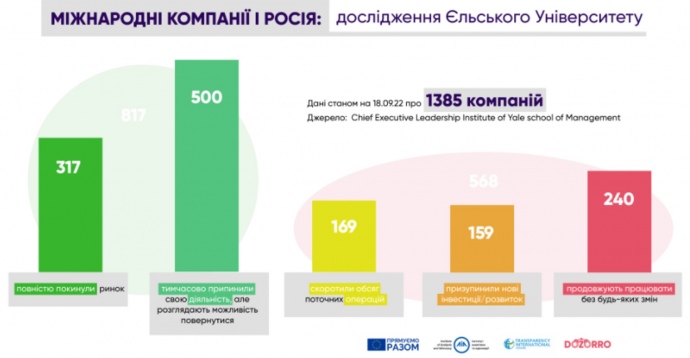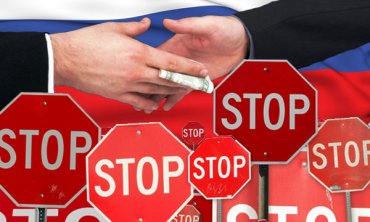

Procter & Gamble
How does the leading manufacturer of shaving blades support the Russian economy, what is the Ukrainian division of the corporation doing now? EP?
Like any large American corporation, P&G professes pure humanism in its charter. However, this does not prevent the Russian Gillette plant from financing the Russian army due to taxes.
P&G employees believe: we have a responsibility to society and will continue to step forward, use our capabilities and resources to be both a force for good and improving the well-being of mankind. communities all over the world.
These are the words of Procter & Gamble CEO David Taylor during the announcement of the 2021 Love campaign. In 2022, these Taylor theses sound rather ambiguous when a company is directly or indirectly investing resources in support of the war.
As one of the few American companies defiantly supporting the Russian economy, what does the Ukrainian division of Procter & Gamble do and what do the remaining state-sponsors of terrorism lose?
From taxes to mobilization
After February 24, Procter & Gamble, along with hundreds of other international companies, made a series of high-profile statements: it condemned the actions of Moscow, announced reduction in sales volumes and even announced a complete exit from Russian market.
Responsible businesses, for which reputation and enforcement of sanctions bans matter, left Russia in the first three to four months after the start of the military invasion. The remaining companies either suspended active operations or reduced their presence and investments, but in fact continued sales of own products and services in Russia.
P&G not only stayed in the Russian Federation, but also did not stop two huge plants. Job creation and taxes support the country’s economy, which directs most of the budget to the military industry.
Two production giants P&G operate in the Russian Federation: a plant for the manufacture of blades and razors Gillette in St. Petersburg and a household chemicals plant in the Tula region, which is the world’s largest manufacturer of detergents for P&G.
The brands Ariel, Tide, Mif, Tix, Ace, Lenor, Comet, Fairy, Mr.Proper and Pampers baby diapers leave the conveyors of the latter. In 2020, during a visit to this production facility, the Governor of the Tula Region Alexey Dyumin called Procter & Gamble “strategic partner of the Tula region“.
His words make sense: the net profit of the Russian subsidiary of P&G in 2021 amounted to 1.4 billion rubles, excluding payments to the Russian budget RUB 365 mln, or about 5.2 million dollars. The company also provides jobs for 2.5 thousand Russians.
After the start of the war in March circulation P&G stressed that it intends to support its Russian employees. At the same time, the corporation emphasized that it was reducing the assortment and leaving only “goods for health and hygiene, on which the daily life of ordinary Russians depends.”
However, this did not stop P&G raise prices of such goods so as to almost offset the loss of income from the reduction of the brand portfolio. It seems that the declared concern for ordinary Russians is actually trying to somehow stay on the big market and take advantage of the fact that more responsible competitors have completely curtailed cooperation with the totalitarian regime.
Moreover, under the new Russian legislation, corporations, as they continue to work in the Russian Federation, are forced to participate in mobilization activitiesfacilitate the recruitment of employees into the army and finance their military equipment.
If Gillette’s continued work in St. Petersburg can still be justified by P&G’s concern for workers and their families, then in the case of mobilization assistance, the company’s support for the terrorist war becomes direct.
Losses from exiting the Russian market
For most international companies, a complete exit from the Russian Federation meant huge financial losses. It was not only about the sales market – some holdings have invested billions of huge production capacities in Russia for years. Now it is impossible to withdraw investments from a country that violates international law.
Nevertheless, according to experts from Yale University, leaving the totalitarian state in the long run will bring more profit than losses.
Despite the suspension of transactions in the Russian Federation and the depreciation of assets, the shares of companies that left Russia rose noticeably. Moreover, the faster the business was curtailed in the aggressor state, the more positive was the reaction of the market.
Markets are favorable to companies that voluntarily left Russia. They are given preference when it comes to debt and credit, because their corporate reputation has extra points.
In addition to Procter & Gamble, other well-known brands remained in the Russian Federation: Colgate-Palmolive, Johnson & Johnson, Kraft Heinz, Vimeo, Patreon, Metro, Ritter Sport, Siemens, Knauf, Leroy Merlin, Auchan, Decathlon, Bonduelle, Lactalis, Danone, Lacoste, Etam Rocher. The list can go on, it hundreds companies.
The second largest player in the blade market, the French BIC, is also trying to slip between the drops of sanctions rain. The company removed its official sponsorship from the website of the St. Petersburg football club Zenit, but continues to sell products in the Russian Federation and brings considerable profit to the country’s budget.

In contrast, financial and production losses did not stop McDonald’s, Netflix, Apple, Coca-Cola Company, eBay, Mercedes-Benz, BMW and Volkswagen, Henkel, Dr. Oetker, L’Occitane and others. After prolonged criticism, production at the plant in Moscow was stopped by the French concern Renault.
Public condemnation, pressure from partner companies and the risk of being subject to sanctions influence the decision of the holding directorate. Corporations understand that most consumers care about who makes or sells goods and services.
More and more people in Ukraine refuse the usual Gillette, Fairy or Lenore. People say that even the quality of the product, proven over the years, does not justify the support of the Russian economy. To do this, even a telegram bot @BoycottRussiaBot was created with a list of companies remaining in the Russian Federation.
Procter & Gamble: Humanitarian rockets
Large companies like Procter & Gamble or Auchan carry out vigorous humanitarian activities in Ukraine, supplying hygiene kits to front-line areas, to centers for helping refugees and internally displaced persons.
On the one hand, P&G and their colleagues sponsor Russian attacks on Ukraine, and on the other hand, they help the victims. Against the background of the cities destroyed with the money of the “philanthropist”, packages with gaskets and razor blades look cynical.
In addition, despite the support of a hostile country, companies like Procter & Gamble continue to operate freely in Ukraine and occupy a significant market share.
P&G has significant production facilities in Pokrov (Dnepropetrovsk region) and Boryspil. Both settlements were repeatedly attacked by the Russians. The shelling took place in front of representatives of the American company, but this did not affect the decision of the directorate to stop the corporation’s activities in Russia.
Against the backdrop of the loss of reputation of brands that support Russians, P&G successfully maintains the image of a trade mark loyal to Ukraine. Obviously, the successful PR of the holding’s humanitarian activities is having an effect, or the Ukrainians do not know about the amount of assistance a simple American company provides to ordinary Russian terrorists.
According to the Ukrainian Wikipedia, Procter&Gamble in Ukraine has almost 2,000 employees. Most likely, some of them are now at the front. Since the beginning of the war, the Ukrainian office of P&G has not made any statement about the support of its employees in the ranks of the Armed Forces of Ukraine, while the Russian one continues to search employees.
“The company is concerned not only with results, but also with how these results are achieved. We never promote or tolerate actions aimed at achieving a result through illegal and unethical deeds anywhere in the world.”
– noted in the Code of Conduct P & G (code of conduct for employees, shareholders, partners, consumers and potential employees. However, “anywhere in the world” is just the opposite.
Material prepared by the Economic Security Council, translation Skeleton.Info
SEB is an institution created with the aim of developing expertise in identifying and counteracting internal and external threats to the economic security of Ukraine.








